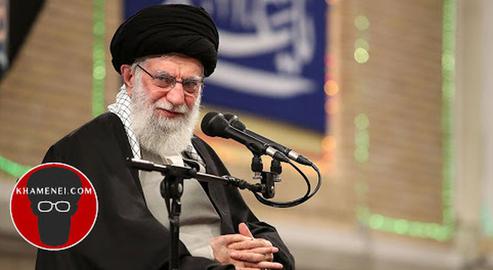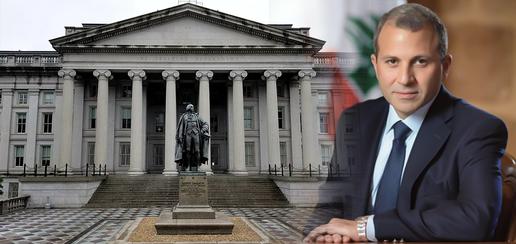A spider weaves its web to catch other insects. But the important point is that this web is not meant to trap the spider itself.
Four decades since the foundation of the Islamic Republic, it seems the Iranian regime has been trapped in a web of its own making. Its consecutive political and economic failures are the threads from which the snare is wrought. Its constant proclamations of enmity towards the United States, on the one hand, and its futile efforts to extradite itself from devastating sanctions, on the other, have produced a vicious circle that render the untangling of this web more and more difficult with time.
***
On November 8, shortly after Joe Biden was declared the winner of the US presidential election, Ayatollah Khamenei issued a statement that doubled down on a pattern that, by now, has become gratingly familiar.
“The enmity of the US towards Iran is because we did not accept their unjust policies,” he tweeted in Persian. “The only way to overcome this animosity is to dash their hopes that they can strike us down. We must grow powerful and strengthen our real instruments of our power. Then the enemy will lose hope.” Thisfollowed another tweet the day before, while the count in the US was still under way, in which Khamenei asserted: “Many of Iran’s current problems have nothing to do with sanctions. They are the result of the lack of cooperation between ourselves.”
This apparently derisory response to the outcome of the US election rang hollow given the Supreme Leader’s track record. In fact, Ali Khamenei appears to be fixated with America and US policy – to the point of affording the country a special new section on his own personal website. Moreover, the Supreme Leader has endlessly pivoted between declaring the sanctions ineffective and holding forth on the damage they have done. Either way, his response has always been to invoke the idea of an ill-defined but impressive-sounding “resistance economy”.
The “Ugly Face” of Liberal Democracy
Before the outcome of the US presidential election became known, Khamenei’s official website launched a new section called “Chaotic America”. Aside from a few short columns and interviews, this is predictably filled with posters advertising the views of the Iranian Supreme Leader, gathered up in such hashtags as “Decadence”, “Extinction” and, of course, “American Decline”.
Khamenei’s website, social media channels and state-controlled news agencies have long been marshalled to amplify the Supreme Leader’s policy statements across Iran – but also to promote books and literature that he has posted to support them. One of the books that Khamenei apparently believes shows the “decline of American political system” is Fear: Trump in the White House by Bob Woodward (2018). Another is Francis Fukuyama’s seminal treatise The End of History and the Last Man (1992), which the new “Chaotic America” section of Khamenei’s website wrongly introduces as a critique of liberal democracy. Then there is a published interview with Mohammad Marandi, a theoretician of the Islamic Republic, who is himself a critic of liberal democracy.
On the same day as the American election, Khamenei fired out a tweet both in Persian and in English, declaring that the tumult over the count was ”an example of the ugly face of liberal democracy in the US. Regardless of the outcome, one thing is absolutely clear: the definite political, civil, & moral decline of the US regime.” Earlier, though, he had insisted that it made no difference to the Islamic Republic who wins the presidential election.
Does Khamenei Believe His Own Sanctions Rhetoric?
A few days before the American presidential election on November 3, Khamenei delivered a speech intended to mark both the Prophet’s Birthday. This year it also coincided with the anniversary of the occupation of the US embassy in Tehran in 1979, an event his website has dubbed the “National Day of Fighting Against Global Arrogance”.
In the speech, the Supreme Leader described the US as “interfering, corrupt and monopolistic” and said that a permanently combative approach toward the country was the “rational” approach. But he also tried to pour cold water on the effect of sanctions on Iran’s economy, stating: “Our people resisted well. With all these sanctions, their consequences and other problems, our people really stood up well.”
Khamenei was speaking of “resistance” exactly one year after thousands of Iranians had taken to the streets to protest skyrocketing prices in the country – and when, according to the Reuters news agency, at least 1,500 demonstrators were killed and hundreds more were thrown into prison. During the November 2019 protests many Iranians actually expressed support for Donald Trump, because they were under the impression that the new sanctions had put the Islamic republic under an unprecedented level of pressure which, in turn, could play an effective role in bringing down the regime.
Instead of US sanctions, Khamenei said in his speech, the government of Iran was to blame for the country’s ongoing economic strife. The problems, he claimed, were “related to our own performance and to lack of harmony. The recent high prices cannot really be justified. Officials should resolve this problem with harmony. When one looks, one sees that the price of products ranging from red meat, chicken and tomatoes to diapers has gone up. Well, there is no reason behind the recent prices.”
This dismissive rhetoric jars with some of Khamenei’s previous remarks on the impact of sanctions. Back in July, in a speech to mark a religious holy day, he had declared “the sanctions that the Americans have imposed on the Iranian people are undoubtedly a crime”, going on to add: “Of course, the sanctions have created problems.”
In another speech on May 6 this year, Khamenei called the sanctions a “customized virus” that were intended to harm the Iranian economy. And on October 7, 2019, in a meeting with the Revolutionary Guards commanders, he conceded that the sanctions were inflicting “maximum pressure” on Iran. Previously Khamenei had announced that in order to lift sanctions, negotiations with world powers, including the US, would be permissible, and in fact in May 2018, he had gone so far as to declare any negotiations useless unless they led to the lifting of sanctions.
In 2016, Khamenei called the sanctions a “war” against Iran — a real war, he said, and one that could be matched only by what he termed “resistance economy”: that is, by relying on the domestic production to resolve Iran’s financial crisis.
Throughout decades gone by, and in fact going back to the Iran-Iraq war, Khamenei has always held that sanctions are problematic, that they cause damage and that they must be addressed. But in between these utterances, he has also emphasized sanctions have been ineffective and the “resistance economy” is what counts — as he did shortly before the result of the US presidential election was announced last weekend.
Desperately Seeking New Content
The Iranian journalist Mehdi Mahdavi-Azad told IranWire that contradictory statements by Khamenei are the inevitable result of his ideological makeup.
“Khamenei’s hands are tied by the earlier positions that he has taken, forcing him to contradict himself and to constantly justify himself,” he said. “Khamenei has said several times that the Iran’s economic problems are the result of the inefficiency of its managers – but, in other statements, he has called the American sanctions an economic war. His statement must be analyzed within the context and the time they are delivered. When he wants to defend the ‘resistance economy’, his main economic philosophy, he says that the US cannot do a thing. But when he wants to emphasize the hostility of the US, he says that Iranian economy has been undermined by American sanctions.”
Mahdavi-Azad believes the launch of the new section on Khamenei’s official website is the last gasp in a long-running campaign for anti-US content to take root in the hearts and minds of ordinary Iranians. “All the money that Khamenei and the Islamic Republic have spent to launch a big movement of thought against the American imperialism has come to dead end,” he says. “They have not been able to find a theoretician who could really come up with new ideas. They only have three or four people. The rest are the soldiers of the ‘soft war’, who just repeat what Khamenei has said.
“Even on his website and on social media channels associated with him, they have absolutely nothing new to say and can only republish what they have from before. Creating this big hub to produce content for his website is obviously a political decision. They do have a lot of people, but they have no content.”
Accordingly most of Khamenei’s supporters end up repeating his statements and positions without adding anything else to them. This is clearly evidenced by even a cursory search for “American Decline” or “Chaotic America” on government or social media.
During the US presidential election Khamenei repeated previous hostile statements about the US, deploying words such as “decadence” and “extinction”. His confused utterances about the sanctions also show that, were the occasion to arise, he would obliterate the “elected” government of the Islamic Republic as well. But it appears that large segments of the Iranian population, who do not support his regime, are no longer listening to him. They are gazing into their purses and wallets, which are getting emptier and emptier by the day, and in all likelihood hoping for the end of the “decadent” dictatorship of a figure whose web can no longer catch prey but has, instead, ensnared the weaver himself.
Also in this series:
Weekly Khamenei Report: Against Freedom of Expression, For Holocaust Denial, 3 November 2020
Weekly Khamenei Report: Love for Vigilantes and Hatred of Peace with Israel, 25 October 2020
Weekly Khamenei Report: Animal Farm, Soleimani Style, 20 October 2020
visit the accountability section
In this section of Iran Wire, you can contact the officials and launch your campaign for various problems



























comments